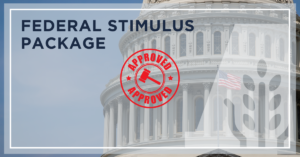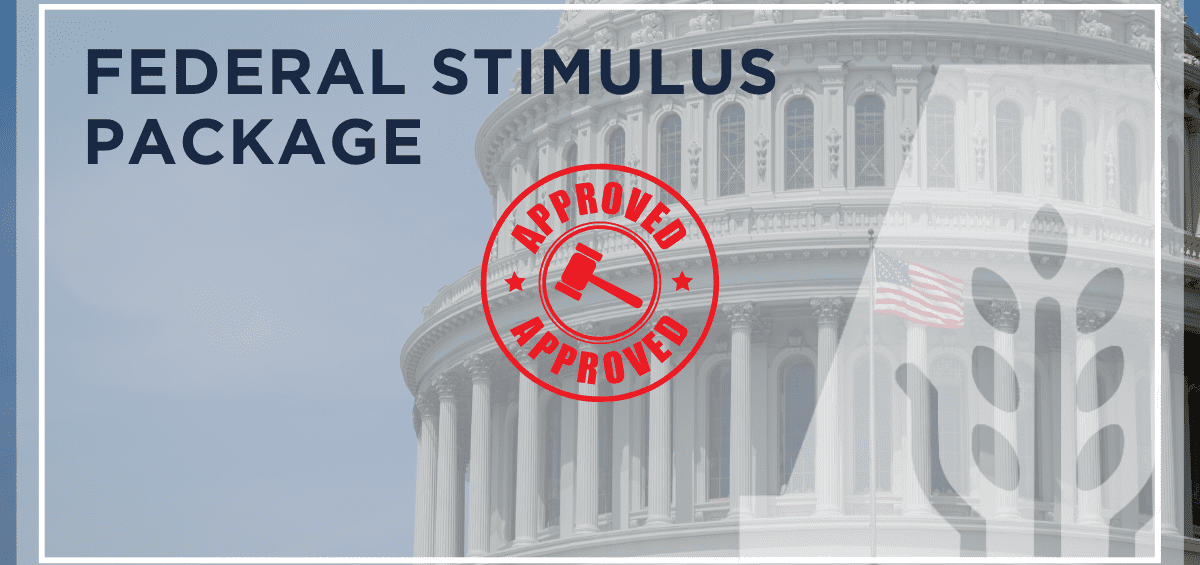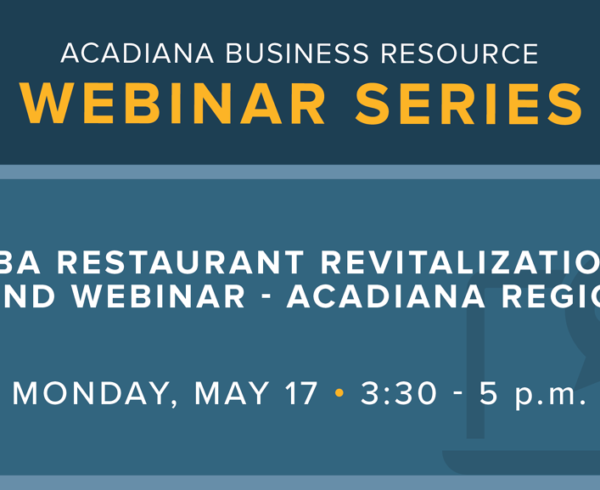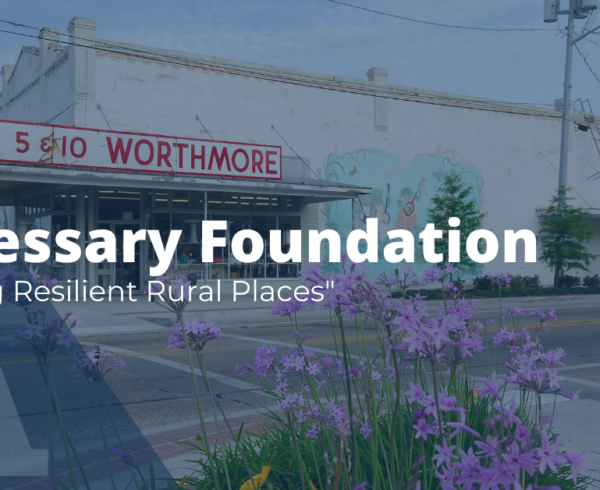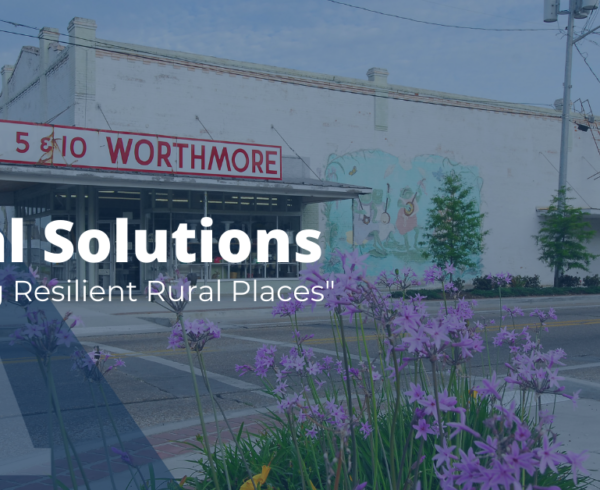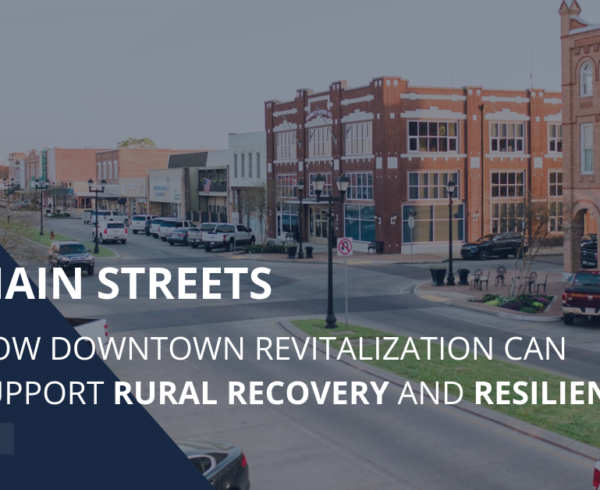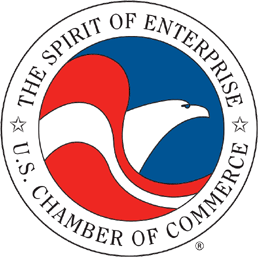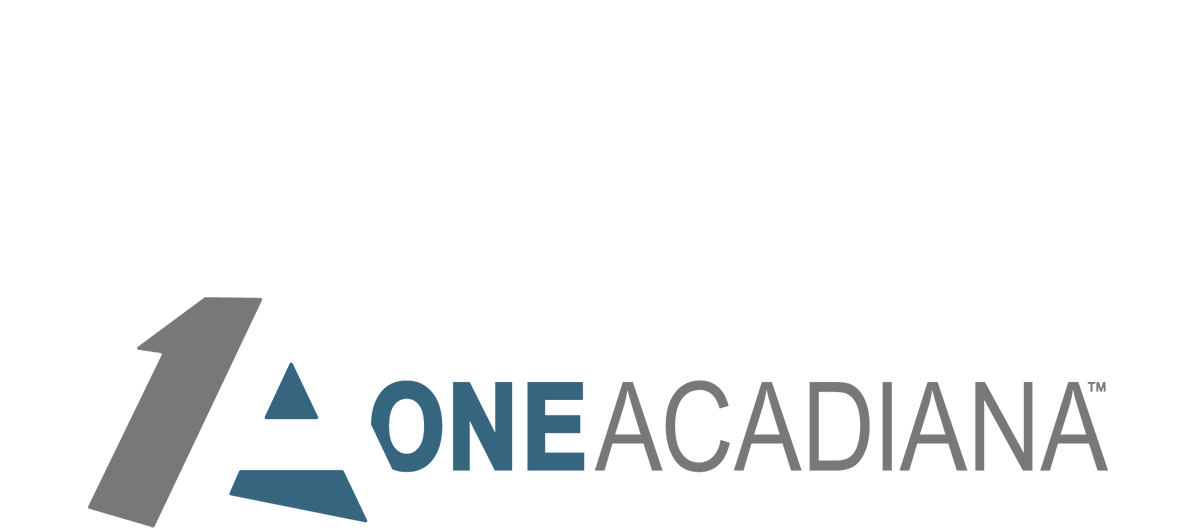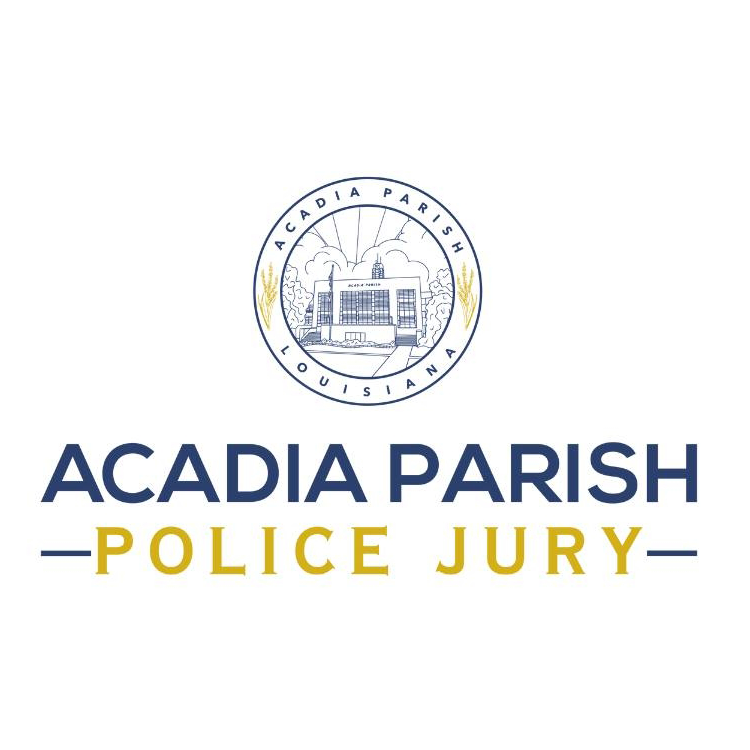The Acadia Parish Chamber, along with regional partners, One Acadiana, are monitoring federal policies being discussed and implemented in response to the current COVID-19 pandemic. Below is information on recent federal actions to provide relief to America’s small businesses as of the evening of March 25.
**The CARES Act was passed on Friday, March 27, 2020.**
PRESIDENT TRUMP AND CONGRESS HAVE BEEN WORKING ON MULTI-PHASE PUBLIC HEALTH AND ECONOMIC RELIEF MEASURES:
Phase 1 – Emergency spending bill to boost funding for the U.S. Department of Health and Human Services (HHS), the Centers for Disease Control (CDC), and the National Institutes of Health (NIH) to assist with testing and containment, medical supplies, treatment and vaccine research, and training (enacted March 6)
Phase 2 – Families First Coronavirus Response Act (enacted March 18):
Guarantees employees of businesses with fewer than 500 employees paid sick leave or expanded family and medical leave due to specific issues associated with COVID-19:
-2 weeks of paid sick leave
-2 weeks of paid family and medical leave
-Up to an additional 10 weeks of paid expanded family and medical leave
Employers with fewer than 50 employees can be exempted from certain family and medical leave provisions if they demonstrate that the leave requirements would jeopardize the viability of the business as a going concern.
The Department of Labor (DOL) Wage and Hour Division has released their initial round of guidance providing more details for employers and employees:
–WHD Press Release
–WHD Fact Sheet for Employers
–WHD Fact Sheet for Employees
–WHD Questions and Answers
The U.S. Department of the Treasury (Treasury) aims for this relief to ultimately cost nothing to businesses:
-Employers responsible for making payments on the front end
-Covered employers qualify for dollar-for-dollar reimbursement through tax credits for all qualifying wages paid under the legislation
-Applicable tax credits also extend to amounts paid or incurred to maintain heath coverage
-Treasury is exploring whether direct deposit is possible
The legislation also expands eligibility for unemployment compensation, provides for free testing for COVID-19, and more.
Phase 3 – CARES Act Signed by President Trump on March 27, 2020
Congress has reportedly agreed on the details of a $2 trillion emergency relief measure. Among other provisions, the package includes:
-$377 billion in small business and non-profit assistance in the form of loan forgiveness grants, SBA emergency grants, and SBA coverage of 6 months of payments for small businesses with existing SBA loans
-One-time direct payments to Americans of $1,200 per adult making up to $75,000 a year, and $2,400 to a married couple making up to $150,000, with $500 payments per child Read More
-Enhanced unemployment insurance- an additional $600 above state issued unemployment payment.
-$500 billion for industries most affected by the COVID-19 outbreak
-$100 billion for hospitals and health systems around the country
-$150 billion for state and local governments
SMALL BUSINESS ADMINISTRATION (SBA) RELIEF
SBA ECONOMIC INJURY LOANS
-Available for small businesses, small agricultural co-ops, and most non-profits
-Can be used on fixed debts, payroll, accounts payable and other bills
-Interest rate of 3.75% for businesses with no credit available elsewhere
-Businesses with available credit elsewhere are not eligible
-Interest rate of 2.75% for non-profits
-Terms are determined on a case-by-case basis based on each borrower’s ability to repay (pre-disaster)
-First payment on loan deferred for one year
For more information, or to apply, visit SBA.gov/disaster.
SBA Administrator Jovita Carranza also announced that SBA will automatically defer existing home and business disaster loans through the end of 2020.
Visit our COVID-19 Business & Employees Resources page for continuous updates on available resources and guidance.
